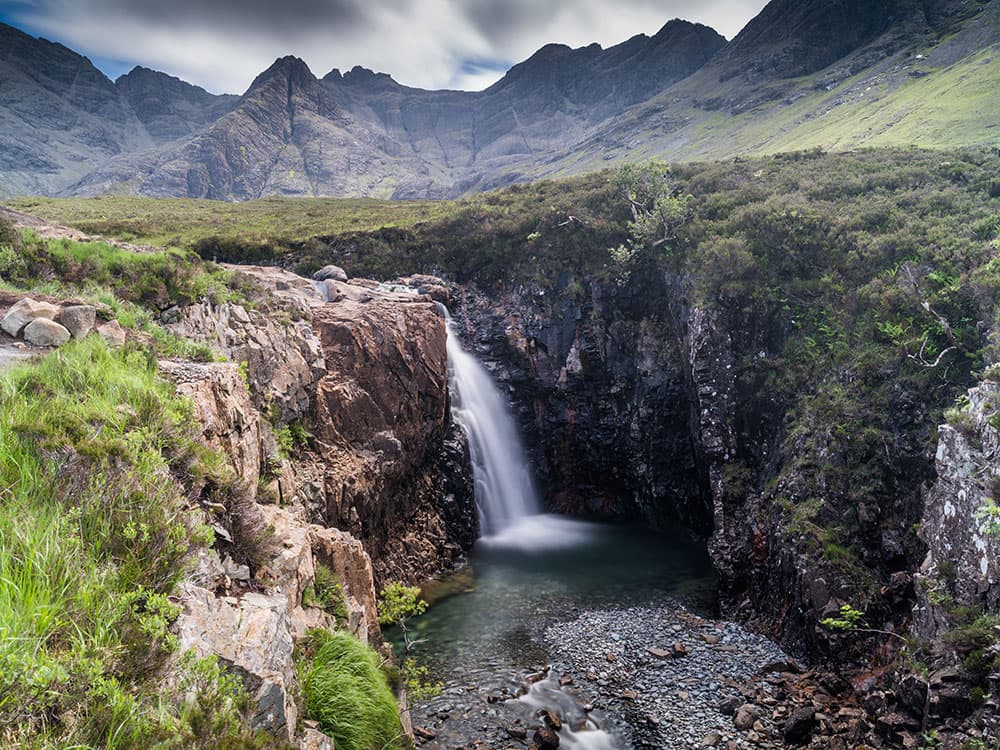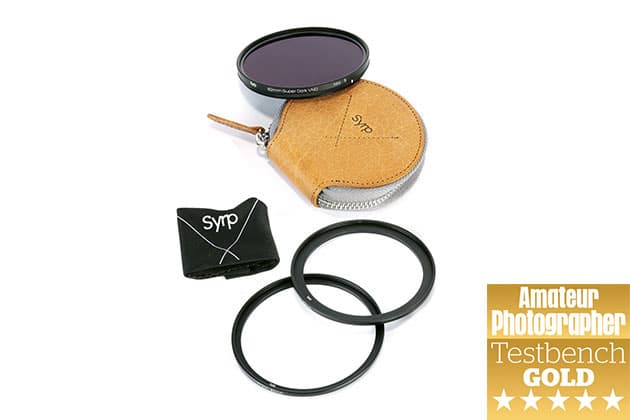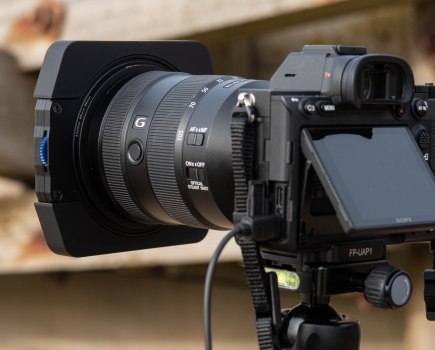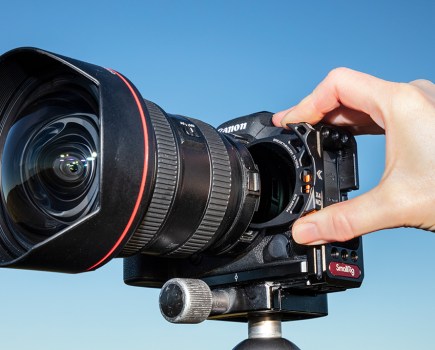Syrp Super Dark Variable ND at a glance:
- Available in large (82mm) and small (67mm) sizes
- Supplied with two step-up rings
- 5 to 10-stop exposure adjustment control
- Price: £139 (67mm kit), £189 (82mm kit)
- Website: www.johnsons-photopia.net
There’s no shortage of long-exposure neutral-density (ND) filters on the market, but for those who’d like to cut down on time spent changing filters in varying light, and who want to take control of how much light passes through the lens directly from their filter, a variable ND filter is worth considering. As with other variable ND filters, this Syrp Super Dark Variable ND sandwiches two polarisers together and prevents between 5 and 10 stops of light (ND32-ND1024) penetrating the lens to the imaging sensor. The benefit of using this type of filter is that it enables you to shoot with slow shutter speeds in conditions that would normally be too bright for long-exposure photography.
The filter itself comes as part of a kit and is available in two sizes – large or small. The large filter kit supplied to us for review includes a pair of step-up rings (77mm and 72mm) to fit the filter’s 82mm thread, whereas the small filter kit has a 67mm thread and provides 58mm and 52mm step-up rings. As part of the boxed contents, you also get a lens cloth and a beautiful tan leather case to house the filter and ensure it stays protected from dust and scratches when not in use.
The design and finish of the filter are hard to fault. On its perimeter you’ll find the stops are clearly marked, and it features hard limits so you can quickly locate the minimum and maximum values from behind the camera. Better still, these hard limits prevent the ‘X’ pattern that can appear when a variable ND filter is pushed too far at the extreme end. The filter rotates very fluidly and the thin knurled ring closest to the lens helps you screw it on tightly to prevent loosening when you’re adjusting the filter’s strength.
The filter was tested in combination with the supplied 77mm step-up ring and used to create the silky water effect at a number of waterfall locations on the Isle of Skye. Most importantly, it delivers neutral colour that’s free of the heavy colour cast you can get with some ND filters, saving you time correcting such issues during post-processing.
Syrp Super Dark Variable ND – key features
Construction
The filter is made from high-quality Japanese glass with a metal surround that ensures it is robust and durable.
Boxed contents
Supplied in a circular cardboard box, there’s also a leather case and lens cloth to keep the filter in pristine condition.
Step-up rings
The large filter includes 77mm and 72mm step-up rings, while the small includes 58mm and 52mm step-up rings.
Benefits of a variable ND filter

One of the benefits of using a variable ND filter is that when it’s set to its minimum strength, you can compose and focus with it attached before it’s used at the extreme end. This can help speed up the process of capturing long exposures out in the field when you need to work quickly and don’t have time to remove a filter between shots.
Syrp Super Dark Variable ND – our verdict
As variable ND filters go, this example from Syrp is by far one of the best we’ve tested. It’s well designed, provides excellent control and allows you to work quickly and decisively out in the field. It does all the things you want from a high-quality variable ND filter, and though not cheap, it certainly feels as if you’re getting a product that’s far superior to some cheaper examples.







